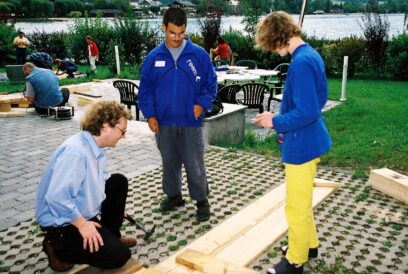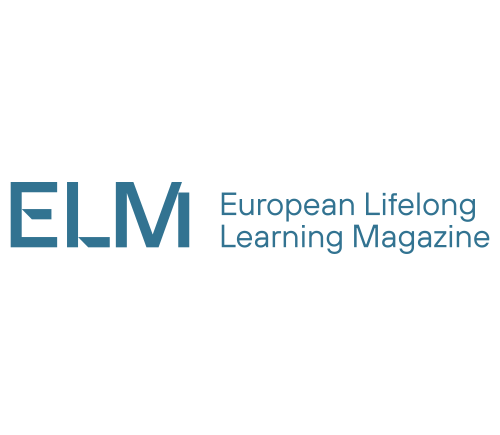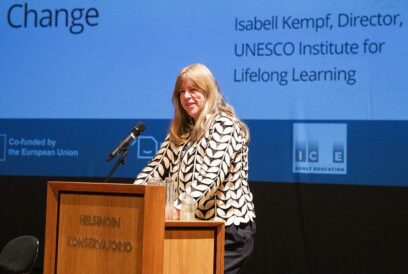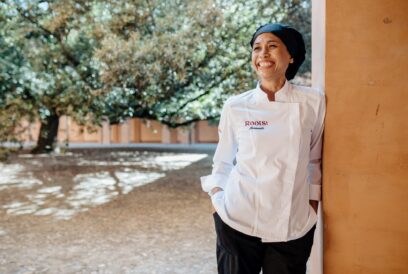

Greece in crisis is in dire need of learning for citizenship. A number of projects based on Learning by Design Framework have already had positive results.
Deep economic recession and high unemployment have created a climate of social instability in Greece. Some impacts of this instability are expressed in phenomena of xenophobia and racist actions, unusual to the Greek social reality so far.
In this situation a re-emphasis is necessary as concerns learning for citizenship. A number of projects in Greece based on The Learning by Design Framework have already had positive results.
Re-emphasizing learning for citizenship is a process which leads to the need of reconsidering its content. The basic element in redefining the concept of the citizen, is the diversity and multiplicity in our personal and social relations in our everyday life.
From uniformity to multicitizenship
As diversity of life gets multiplied, there comes forward the need for the shift in the policies, which concern the citizen, from homogenisation and uniformity to multiplicity, to the multi-identities of the citizens or the multicitizenship. Identities are contested, overlapping and negotiable.
From this point of view, negotiation of diversity instead of replication and sameness is the precondition and the basis of social cohesion. The citizen is not only a sum of rights and responsibilities, but also the relations of a person or a group within a society. Therefore, the Fundamental Rights of the citizen have to take into account the cultural dimension, as well.
Cohesion through diversity
The main challenge facing democratic citizenship is to accommodate diversity. To be equal and yet different defines the challenges of cultural citizenship today. Successful negotiation of difference is a fundamental basis for equity. You don’t have to be the same to be equal.
However if social cohesion is to function and provide a point of articulation between and across difference, social constructions need to retain values of moral, ethical and political ground from which to negotiate among multiple interests. Without a shared vision of democratic community, we risk the danger of difference collapsing into new forms of separatism. In trying to avoid the “tyranny of the whole”, we must not get trapped in the “dictatorship of the fragment”. This suggests a dual task in citizenship: to develop community while securing diversity so that different lifeworlds can flourish.
In the above context, the policies of multicultural negotiation and management of diversity concerns not only those social groups of a different language, religion or ethnic identity. It also concerns those social groups of common cultural features whose members are threatened with social exclusion.
Learning as transformation
Learning for citizenship through diversity is a transformative process. It is a journey from a known to a new and unfamiliar place, during which learners are changing their view of the world, changing also themselves into persons whose horizons have been broadened.
This learning journey is a process of expanding horizons, by which means learners extend their range of knowing and being, but not necessary in order to leave their selves behind or to reject original lifeworlds.
The transformative learning for citizenship creates new learning designs. The Learning by Design Framework is a concrete response to these approaches.
“Learning by design” in practice
The above mentioned approach is influenced by the “transformative learning” school of thought in Adult Education (Mezirow). Furthermore it was redesigned in the field of literacies by the so called New London Group. This Group of experts worked together to reconceptualize literacies in a context of diversity, multiplicity of modes of communication and changes in life.
The “Learning by Design” approach of “multiliteracies” was solidified by the influential publication “Multiliteracies” (Cope-Kalantzis, 2000). It is a practical outcome of the Group, having been applied in different places of the world.
Mary Kalantzis, a Greek-Austalian professor, key-person in the Group, has been working over the last years with the Greek Group in respective projects of adults in Greece.
The emphasis of the projects is the learning processes for engagement and transformation of life experiences to learning experiences. These processes organized in relation to main learning theories are as follows:
– Experiencing: from the known to the new
– Conceptualizing: By naming with theory
– Analyzing: Functionally and critically
– Applying: Appropriately and creatively
Thus learning processes incorporate the tasks of multicultural performance: cultural recognition, interaction and reflexivity.
The first evidences of the application of the projects are positive. Learners in their interviews expressed their appreciation for a participative experience based on their real lifeworlds. Trainers also valued the projects as offering them the sense of ownership and creativity.
However, much work has to be done specifically in training of trainers and in changing the structures of learning in a more flexible, community based direction.
In any case the projects seem to be an effective pathway to follow in a social reality which is anxious, embarrassed, and upset as it happens nowadays in Greece.
This article was produced in collaboration with InfoNet adult education network.





